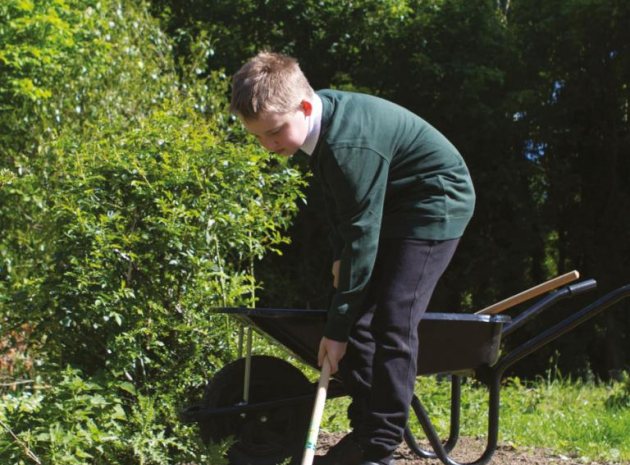It is a fact that Looked After Children (LAC) lag behind in education. According to the DfE in 2016 only 17.5% of LACs achieved an A*-C in English and mathematics compared to 53.0% of mainstream students nationally. This has to change.
At Outcomes First Group, we provide education and care services to children, young people and adults with autism, complex needs, learning disabilities and social, emotional and mental health needs (SEMH). In our schools, we provide a range of vocational programmes alongside the national curriculum – because it gives our learners a chance to develop skills and qualifications which will help them to find meaningful employment, and escape the trap of leaving school just to become another statistic on the NEETs register; like all schools, our aim is to make sure our children stay in education, and succeed. three miles away”
New experiences
Hillcrest New Barn is one of our schools in West Berkshire. It is an Ofsted registered day school in a rural setting in the grounds of the Welford Estate that currently provides coeducational education for 18 children aged 6 to 16 with Education Health and Care Plans (ECHPs) from surrounding local areas. Attendance is excellent at New Barn: 98.6% against a national average of 95.7% – but that is only one measure of success.
Alongside the subjects you would expect to see, our learners are setting up a small mobile catering business. Children in care often miss out on work experience because of disruptions to their education, placement moves and difficult personal circumstances, so we developed this project to prepare them for employment. It has also provided opportunities to be creative, to make good contacts and to extend and market their skills. We were lucky to have expertise in our local community: John Campbell is a Michelin star chef and he currently runs The Woodspeen, a restaurant and cooking school Newbury. He is now one of our trustees and is advising our students on menus and catering law.
Support, security, success
The project started with the group looking for a suitable van from which to run their business, but learners have now settled on a horse box. “We soon realised that vans are expensive and many do not allow workers to stand up in them,” explains Alice Anstee, the head at Hillcrest New Barn. “Once again, we’ve been able to make use of a local contact who can help us source a suitable horse box - and then the hard work of scrubbing and renovating will begin.”
One of the advantages of a project like this is that it encourages an entrepreneurial spirit. Students now know about business plans, food hygiene, fundraising, insurance, health and safety and marketing – and they have even taken advantage of the warm summer to go fruit picking, so they can make their own jams.
Our mission is to provide support and a sense of security for vulnerable children, to help them develop into confident young adults who can contribute to society. We have helped them to develop their voice, experience success and a sense of common purpose – and, perhaps for the first time in their lives, they have enjoyed school
Great work: how to run a successful vocational programme for vulnerable young people
1: Make sure they get work experience which is relevant and challenging.
2: Develop links with your local community as they may be your greatest allies when you are looking for advice/ placements/ fund raising.
3: Help them develop entrepreneurial skills, as self-employment may be a better option than an entry level job or apprenticeship for those who are likely to move to a new area.
4: Make sure that as far as possible the learners have creative control – help them, but do not take over.
5: Focus on the process and not the end product – this is especially important if students move on before the project finishes.
6: Make sure there are milestones and celebrations along the way to boost confidence.
7: Give them experience of working with people of different ages, both adults and younger children, to prepare them for life after school.
8: Accept that they will work at different rates and plan sessions accordingly.
9: Be encouraging when young people have complicated lives and are not confident, one negative comment can make them disconnect from the whole process.
10: Celebrate their work with a certificate, video or event at the end of the process.
About the author
Graham Baker is Group CEO at Outcomes First Group.







